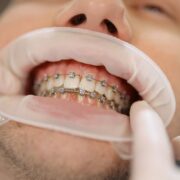If there’s anything that we’ve learned from the Covid-19 pandemic, it’s the importance of healthcare. Besides, healthcare workers are some of the most dedicated, hardworking, and noble people who sacrifice their wellbeing in order to help others. So if you’re thinking about a career in this field, then it’s important to be well-prepared and ready for all the challenges that you may encounter while working. So for that reason, here are some of the most required skills you’ll need as a future healthcare worker.
1. The ability to adapt
Whether you work as a doctor, a nurse, or a volunteer, you should be able to adapt to ever-changing circumstances. Working in a hospital or a clinic can be a very dynamic and exhausting experience, therefore, being willing to adapt will definitely help you in the long run. Flexibility and an open mind are huge personality traits that can really get you far if you’re careful and considerate. Being flexible is important in healthcare since this field usually doesn’t have a typical “9-5” work schedule.
2. The willingness to be patient
Patience is a virtue, you’ve probably heard that one many times before. And when it comes to working in healthcare, then this is definitely true. Sometimes, getting a job in this field means you’ll spend many hours during the shift doing virtually nothing, while some days will be so hectic that you won’t have much time for relaxing in your enclosed patio with your family members. That’s why being patient can help you a lot: you’ll learn to value your own time while being considerate of others.

3. Being motivated to learn
Having a desire to learn is a huge asset no matter your choice of career. But, if you decide to become a healthcare professional, then having a desire to learn can really pay off. Medicine tends to evolve over time, and being able to catch up or learn new skills will surely boost your career prospects. This is especially important if you decide to work with toddlers and kids. They’re often fragile and afraid, so being able to help them is one of the noblest endeavors you could pursue. The best way to start is to consider finishing a PALS course online that will teach you how to help kids during critical health emergencies. This can be of huge help, not only to healthcare workers but also to parents and kindergarten teachers.
4. Knowing how to handle stress
Stress is inevitable, therefore, being able to handle it well can help you live a more peaceful life. Now, this ability should also be applied to your career, especially if you want to work in healthcare. Being a medical worker can be truly stressful, which is completely understanding, considering that there are lives at stake. So, having useful stress management techniques and healthy coping strategies is something you should focus on. Taking a walk, going to therapy, keeping some small plants like dracaena varieties,
exercising, or simply taking a rest are all valid and healthy ways to unwind after a stressful period at work.
5. Empathy and sensitivity
Empathy can be a huge asset when working in healthcare. However, this soft skill also needs to be controlled, because having too much empathy may end up costing you a lot. Many veteran healthcare workers may sound dismissive or plain rude to patients, but that’s due to their experience. Just because they’ve been working for too long, that doesn’t mean they lack empathy. Simply, working in healthcare definitely requires a degree of empathy and sensitivity, yet it’s still crucial to remain level-headed and sane in order to help others.

6. Knowing how to communicate
Communication skills are required for almost any position, especially in healthcare. In case your job requires you to speak to patients or their families, then you should know how to deliver sensitive or downright difficult information while still remaining stable and positive. But, good communication skills are also significant in order to have good professional relations with your co-workers. If communication isn’t your strong suit, then it’s advisable to learn more about assertiveness, so you’ll be more confident to communicate in a firm, yet friendly manner.
7. Positive attitude even when you don’t feel like it
Sometimes, positivity is the last thing you’d do, but if you want a long and prosperous career in healthcare, being optimistic can be truly helpful. Since healthcare is ridden with harsh realities and difficult situations, having a positive attitude will surely help you go through it unscathed. Plus, being able to remain realistic, yet cheerful is something your patience will definitely appreciate.
These soft skills are important in any job, but when it comes to healthcare, they’re absolutely necessary. Knowing how to talk to patients and co-workers, being willing to learn, empathy, kindness, and patience will certainly help you become a wonderful healthcare worker that everyone will be proud of.










[…] Healthcare careers, in particular, are booming in Virginia, with the fastest-growing careers including occupational therapy, physical therapy, nursing, and home health aid. […]
[…] Healthcare careers, in particular, are booming in Virginia, with the fastest-growing careers including occupational therapy, physical therapy, nursing, and home health aid. […]